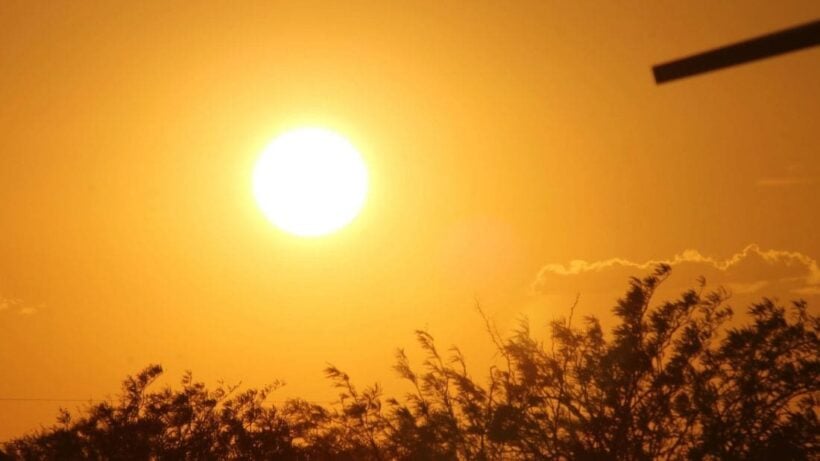Meteorological Department warns of extreme heat in some Thai provinces

Thailand’s summer season is coming and many are bracing for the heat.
The summer season is expected to last from the end of February to mid-May, and Thailand’s Meteorological Department has warned that some provinces in the country may experience extreme heat. Temperatures in these provinces could rise as high as almost 45°Celsius, the department said.
Although the highest temperature in upper Thailand is expected to reach 35.5°C, close to the average range of 35.4°C, some provinces could see temperatures soar to almost 45°C, due to these high temperatures in past years:
1) In the Mueang district of Mae Hong Son province, on April 28, 2016, the temperature was 44.6 °C.
2) In Uttaradit province, on April 27, 1960
3) In Sukhothai province, on May 11, 2016, it was 44.5°C.
4) In Sukhothai province, on April 12, 2016, it was 44.3°C.
5) In the Thoen district of Lampang province, on April 11, 2019, it was 44.2°C.
The department’s director, Chomphari Chomphurat, stated that upper Thailand will be hot during the day from the end of February to mid-March, while parts of the north and northeast will still be cool in the morning. From mid-March to mid-April, many areas in the country will be sweltering hot, with temperatures reaching 40-43°C and summer storms being a possibility. From mid-April to mid-May, the weather is expected to be erratic with some areas experiencing very hot weather and others facing thunderstorms, Matichon reported.
Meanwhile, the country’s south is expected to see more rain and possibly heavy showers from late February to mid-April, with waves in the Andaman Sea and the Gulf of Thailand reaching one to two meters high and temperatures hovering around 37-38°C. The end of April onwards is expected to see continuous rain, ranging from heavy to very heavy in some areas, and waves reaching two to three meters high in the Andaman Sea with the possibility of cyclones forming.
Thailand’s summer season is predicted to be delayed by one or two weeks this year.
This summer, the highly anticipated return of the Songkran Festival is the main attraction, after being cancelled for two years due to the Covid-19 pandemic.
The festival is a time of paying respect to elders, making merit and seeking forgiveness. It also serves as a time to reunite with family and friends and to cleanse oneself of bad luck and negativity.
One of the most significant rituals of the Songkran Festival is the water pouring, where participants splash water on each other as a symbol of purification.
Streets and homes are decorated with colourful lanterns, banners and flags to celebrate the new year. A variety of traditional Thai foods and drinks, including sticky rice, mangoes, and special alcoholic drinks, are served during Songkran Festival.
Songkran Festival is also marked by street parades and processions, which feature elaborate floats, music, and dance. Songkran Festival is now a major tourist attraction in Thailand, with thousands of visitors from all over the world coming to join in the celebrations.
Many Thais are also making travel arrangements, such as tour buses and flights, to reunite with their families and celebrate the five-day holiday from April 13 to 17.
Latest Thailand News
Follow The Thaiger on Google News:


























